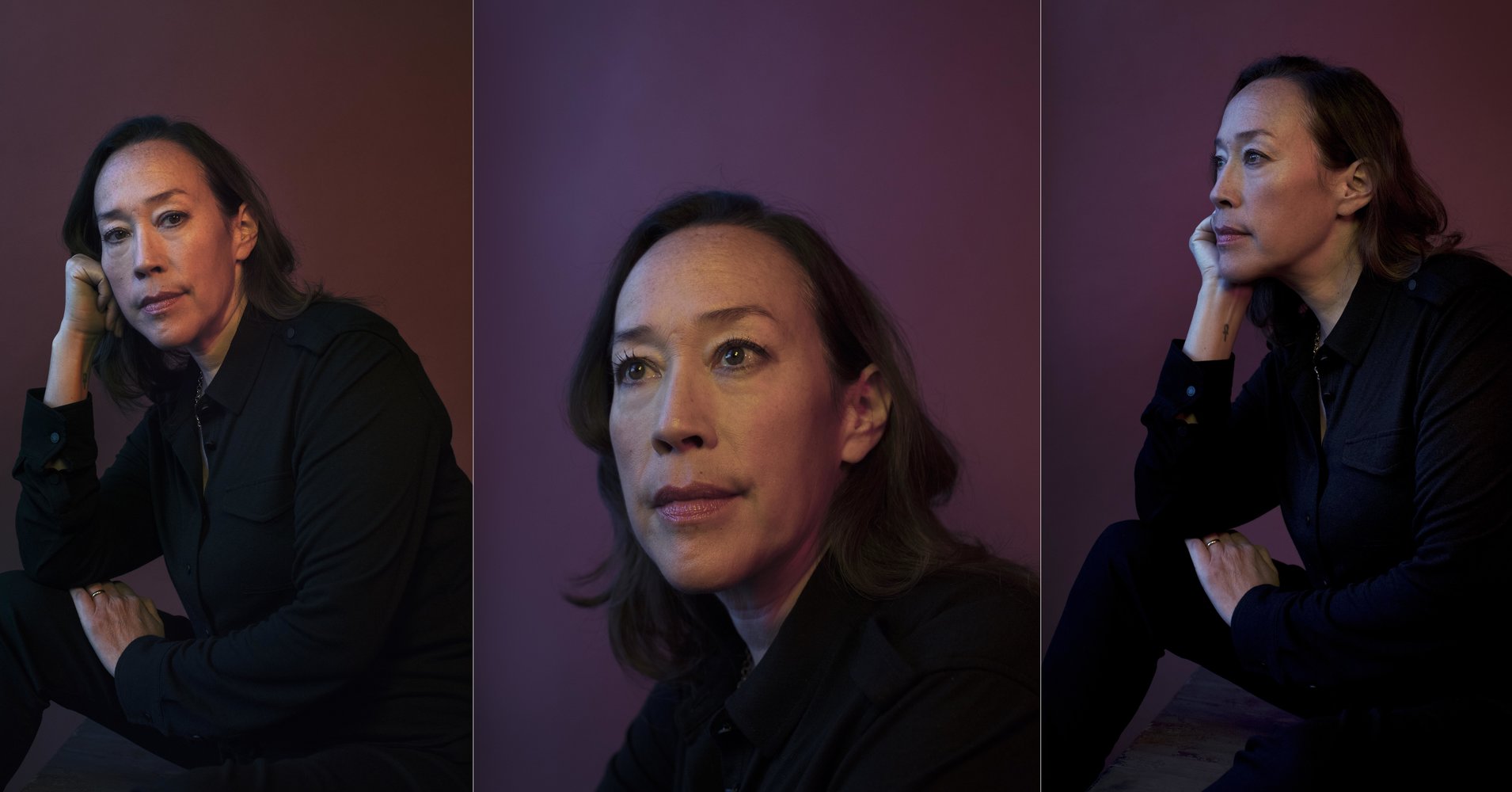[ad_1]
NEW YORK — Karyn Kusama is tired of being reminded that she’s a female director. It’s one of the first things the “Destroyer” director tells me after we sit down for lunch at a restaurant in Chelsea. It’s a chilly December afternoon in New York, where lunch with me is but one stop on Kusama’s full-day itinerary that has her bouncing from one awards season interview to the next.
Her comment isn’t in response to any question of mine, but given how frequently it comes up in conversations with journalists, I wonder if she’s bracing for something.
“A big part of my experience in making the movie,” Kusama says of her upcoming film, an absolutely brutal Los Angeles crime drama led by an unrecognizable Nicole Kidman, “is constantly being asked about being female.”
“It’s as if I’m being reminded of it because it’s a deficit or because it’s a mark against me, or worse,” she adds with a bewildered laugh, as the hum of a patio heater buzzes nearby, “that I don’t know.”
At a time when the film industry is finally, if reluctantly, acknowledging the gender inequality that courses through it, and holding abusive men accountable for their crimes against women, Kusama realizes that discussions around diversity and identity are important. But why should they overshadow her work or define it? Male filmmakers are never asked about the basic reality of being male. It’s women, people of color and LGBTQ folks who are asked to explain art through the lens of their identities.
Defining Kusama as a female filmmaker is like describing Kidman’s “Destroyer” character as a female detective; it’s an obvious, but diminishing characterization.
“I’m realizing that when it’s pointed out to me that I’m female, it’s as if I’m marginalized by my very identity.” And that, Kusama tells me, she can no longer agree to. “It starts to feel really reductive.”
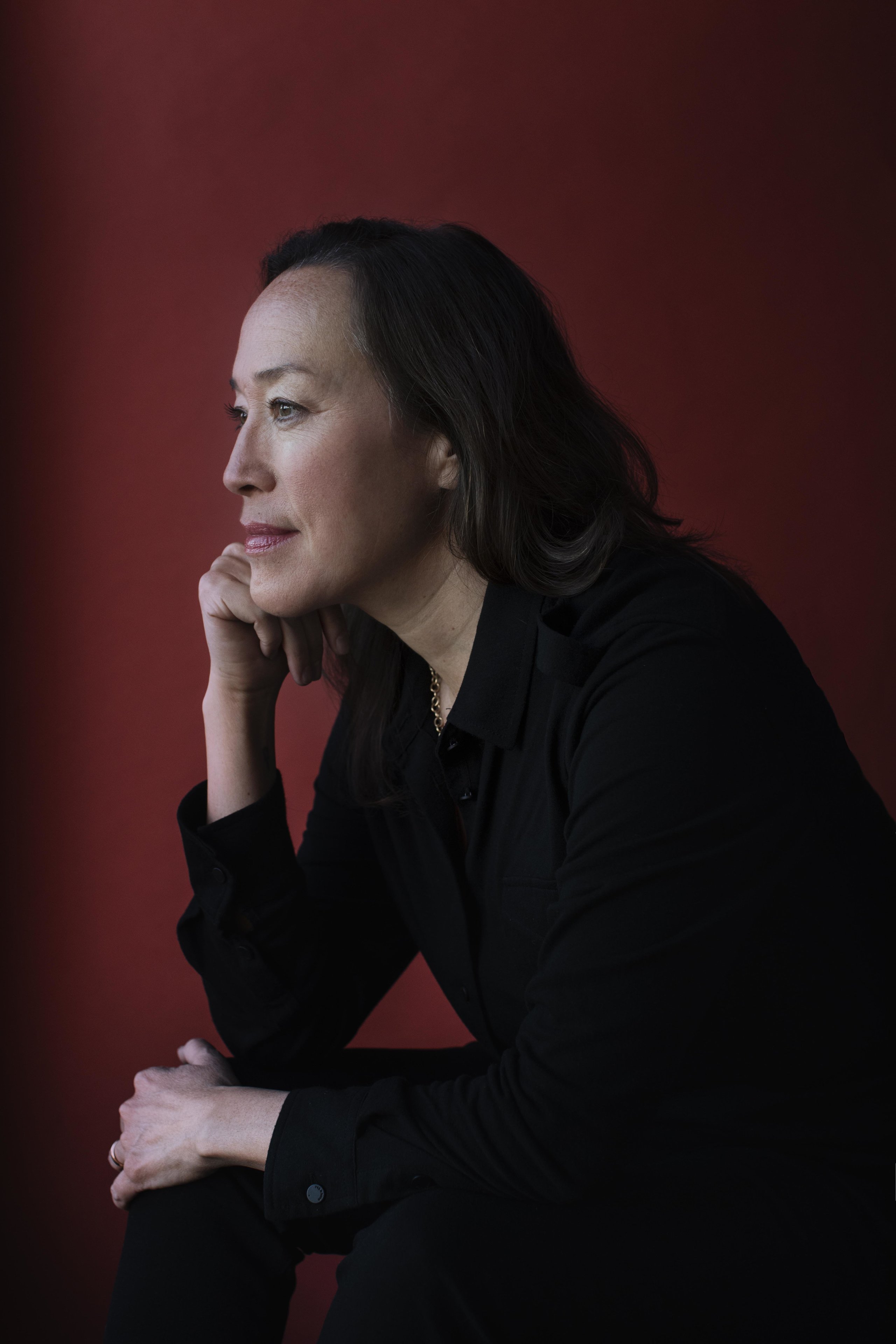
Celeste Sloman for HuffPost
As a director, Kusama has never been comfortable with boxes, or any rigid confines that affect the way she makes movies. Her films ― from the unexpected 2000 sports drama “Girlfight” to the wickedly clever 2009 horror-comedy “Jennifer’s Body” to 2015’s grief-stricken thriller “The Invitation” ― defy the descriptors used to qualify them. With the neo-noir “Destroyer,” Kusama continues to pour lighter fluid on the conventions dictated by genre and gleefully flick a cigarette.
“I love the idea of a 14-year-old boy thinking he’s going to watch a boxing movie and watching ‘Girlfight,’” she says. “That’s cool to me. … Because you’ve opened the door for them to come discover it. And genre is that open door.”
“Destroyer” could be thinly described by its genre as a detective story. When writers Phil Hay and Matt Manfredi, who worked with Kusama on “The Invitation,” first pitched the movie 10 years ago, they framed it as much ― a detective story with an “unusual structural architecture.” Its protagonist wasn’t fully realized, but from the start, Kusama tells me, the trio agreed that “Destroyer” would forefront a woman.
I tell Kusama that out of the legions of hard-boiled detectives in film ― many male, like Raymond Chandler’s PI Philip Marlowe or Robert Mitchum’s mysterious Jeff Bailey ― I’ve never seen a character quite like Erin Bell. She’s more reminiscent of Catherine Cawood, the dejected police sergeant at the heart of the BBC TV series “Happy Valley.”
“For me this feels like a pretty radical departure from noir tropes in that women almost never occupy the protagonist’s role,” Kusama explained of “Destroyer.” More often, she said, women in detective stories are relegated to the role of femme fatale, a beautiful but duplicitous obstacle for the men around her to overcome. “They’re the main character’s problem. [But] in this case, our main character ― her problem is herself.”
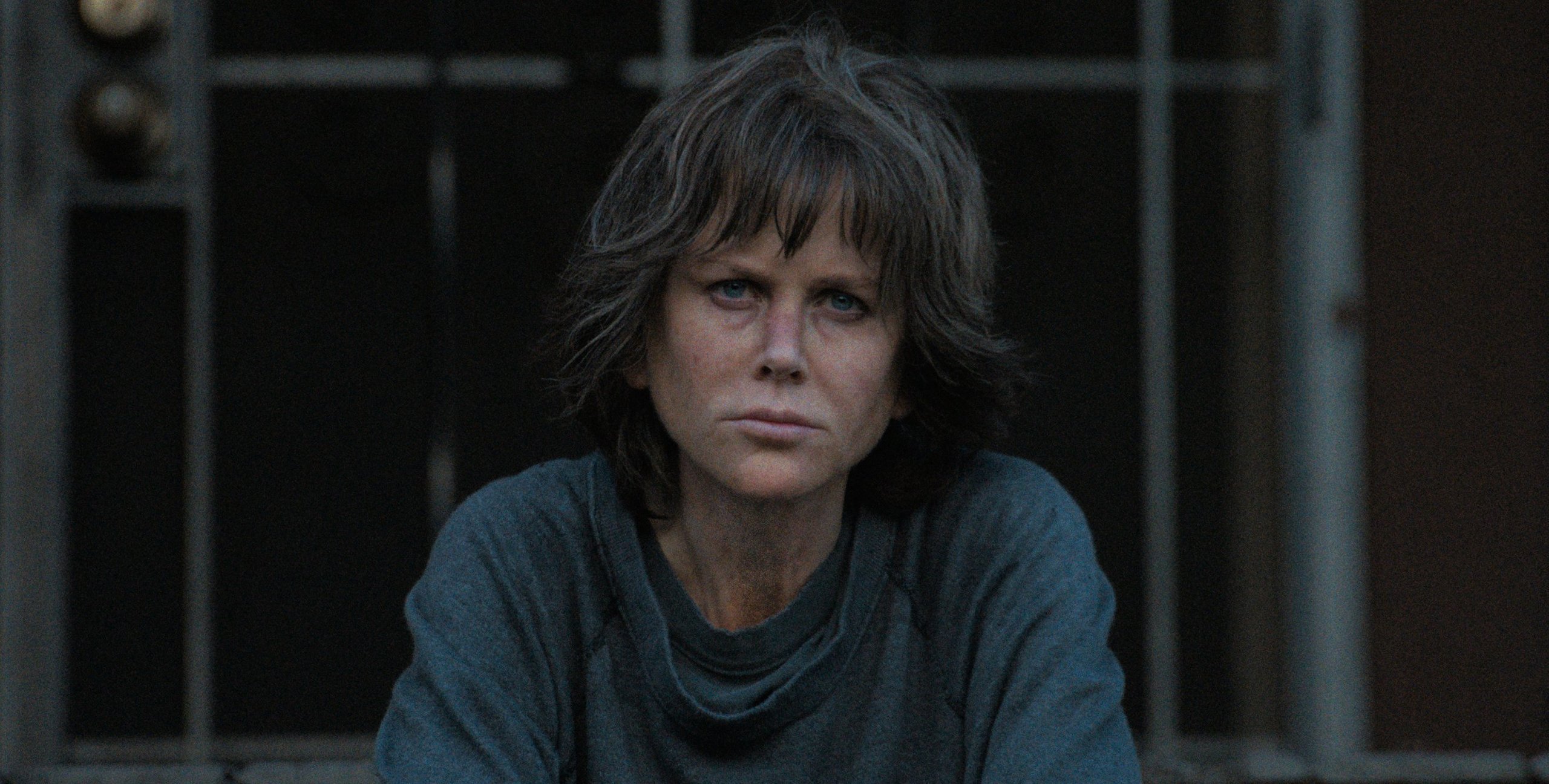
Annapurna Pictures
The LAPD detective, mother and lonely alcoholic at the heart of “Destroyer” looks like she drinks a glass of water as often as it rains in Los Angeles. Her sunken eyes, cracked skin, graying hair and cadaverous, drooping frame give the impression she could disintegrate into a cloud of dust at any moment. The exterior mirrors a fractured psyche buried beneath the husk, that of a woman navigating both the painful corridors of her subconscious and the grim criminal underbelly of her city.
In words, Erin Bell is one thing, but on screen she’s brought to ferocious life by Kidman. We feel the weight of Erin’s anguish in Kidman’s every exhausted step along the dusty stretches of the dried-up LA river and in the actress’ defeated glances at a disappointed daughter, who’s beginning to gurgle with the same rage as her mother.
“I’m fucking angry,” Erin admits to her child through a clenched jaw. “It’s burned a circuit in my brain.”
Staggering flashes of that animalistic anger explode out of Kidman. In one scene, she savagely pistol-whips a lawyer and continues to beat him long after blood oozes from a deep gash in his forehead. Later, she charges into a bank midrobbery, firing a shotgun like a trigger-happy madwoman jolted back to life.
It’s not difficult to believe Kidman went full method, opting to stay in character for the entirety of the shoot. The thing is, Kidman never told Kusama about her plans to fully embody Erin’s personality on set. Looking back, Kusama remembers a joke Kidman made early on in production, which turned out not to be a joke at all.
“When this is all over,” Kusama remembers Kidman telling her, “you’ll get to know me.” The director thought it was funny, if not a little standoffish. “I’ll be honest, it took me a while to figure it out. I realized what she meant was, ‘I’m not really leaving Erin’s frequency. So access to me, Nicole,’ who is extremely emotionally available, extremely open, trusting ― that’s not who I was dealing with on set.”
“To toggle between open, trusting Nicole and Erin Bell was just too much energy,” Kusama said.
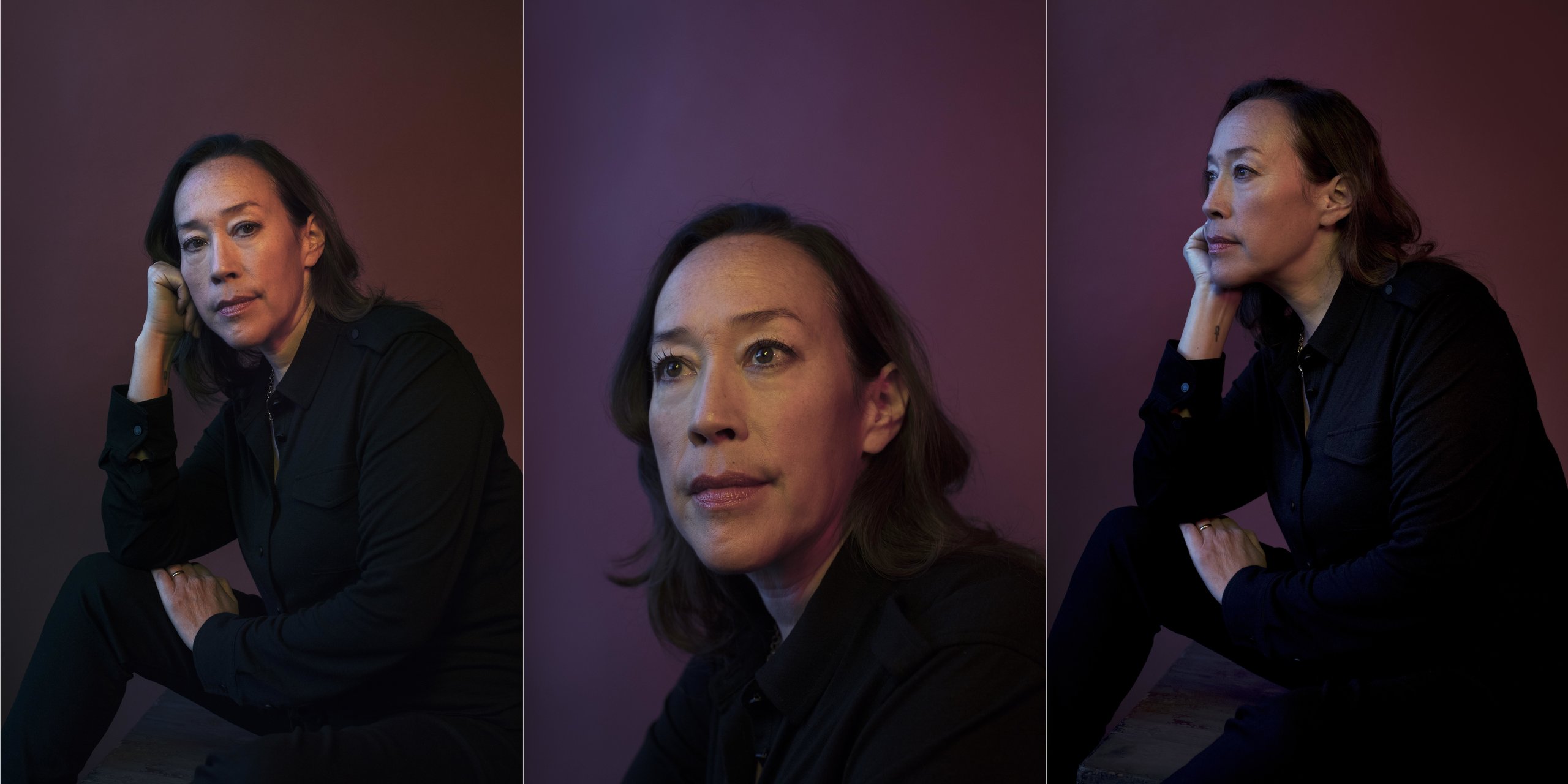
Celeste Sloman for HuffPost
Kidman’s performance, which recently earned her a Golden Globe nomination, has been lauded by critics since the film debuted at the Telluride Film Festival earlier this year, where conversations began to fixate on the actress’ makeup.
“Yeah,” Kusama says, between bites of her lunch, when I bring up the talking point. “Unfortunately.”
As much as the director admits Kidman’s severe appearance was an essential element of the character, and praises the work of makeup artist Bill Corso, she feels the attention paid to it has become “a referendum on [Kidman’s] beauty or lack of beauty in the film.”
Perhaps it’s easier for critics to fixate on Kidman than it is to condense the plot of “Destroyer” into anything succinct, or explain why the character of Erin is such an immensely tortured soul. As Kusama describes, Erin is “the agent of her own destruction”; less a straightforward victim, and more an individual burdened in inexplicable ways by trauma. Her story isn’t, as audiences could expect, about a woman whose suffering is the result of being wronged by another.
“Instead of [the story] being about recriminations and blame, it’s watching one person take some responsibility,” Kusama says. After a brief pause, she adds, “Isn’t that something we all look for out of life?”
For the most part, “Destroyer” hooks you by withholding information. The film rests within an atypical structure that cleverly collapses time to swivel between past and present. The style mimics the chaos inside Erin, thrusting the audience into fragmented snapshots of when she worked as an FBI agent and infiltrated a criminal organization with her then-partner Chris (Sebastian Stan). Like any classic moody film noir, our detective must confront the unresolved pain that’s lingered all these years. When new evidence emerges in the present day, suggesting Erin’s former gang might be active again, she’s thrust back into the gnarly mess of her undercover days.
On the surface, “Destroyer” recalls gritty crime classics like “Heat,” “Chinatown” and “The Usual Suspects.” But Kusama’s vision of the city that contains her story is grubby and sordid, lacking the breezy palm trees, pulsing neon and languid highway views that populate the twinkly visions in Nicolas Winding Refn’s “Drive” or Aaron Katz’s “Gemini.” In Kusama’s version of LA, the grime of the city nearly seeps out onto the audience’s lap. Los Angeles isn’t a paradise, but a city where the smog slaps you in the face, where the petrifying remnants of shattered teeth litter the floor of a crowded coffee shop, where the bumper-to-bumper traffic is suffocating. Watching “Destroyer,” I recognized the LA I grew up in as a kid.
Kusama bucks another genre convention by shooting most of the film’s scenes in daylight, rather than casting Erin’s crime odyssey in the glow of night. The director, who lives in LA herself, was thrilled to bring that “assaultive brightness” to her movie’s action sequences. “When we get to nighttime,” she says of the few scenes that take place after sunset, “it can almost feel a little bit like a visual relief.”
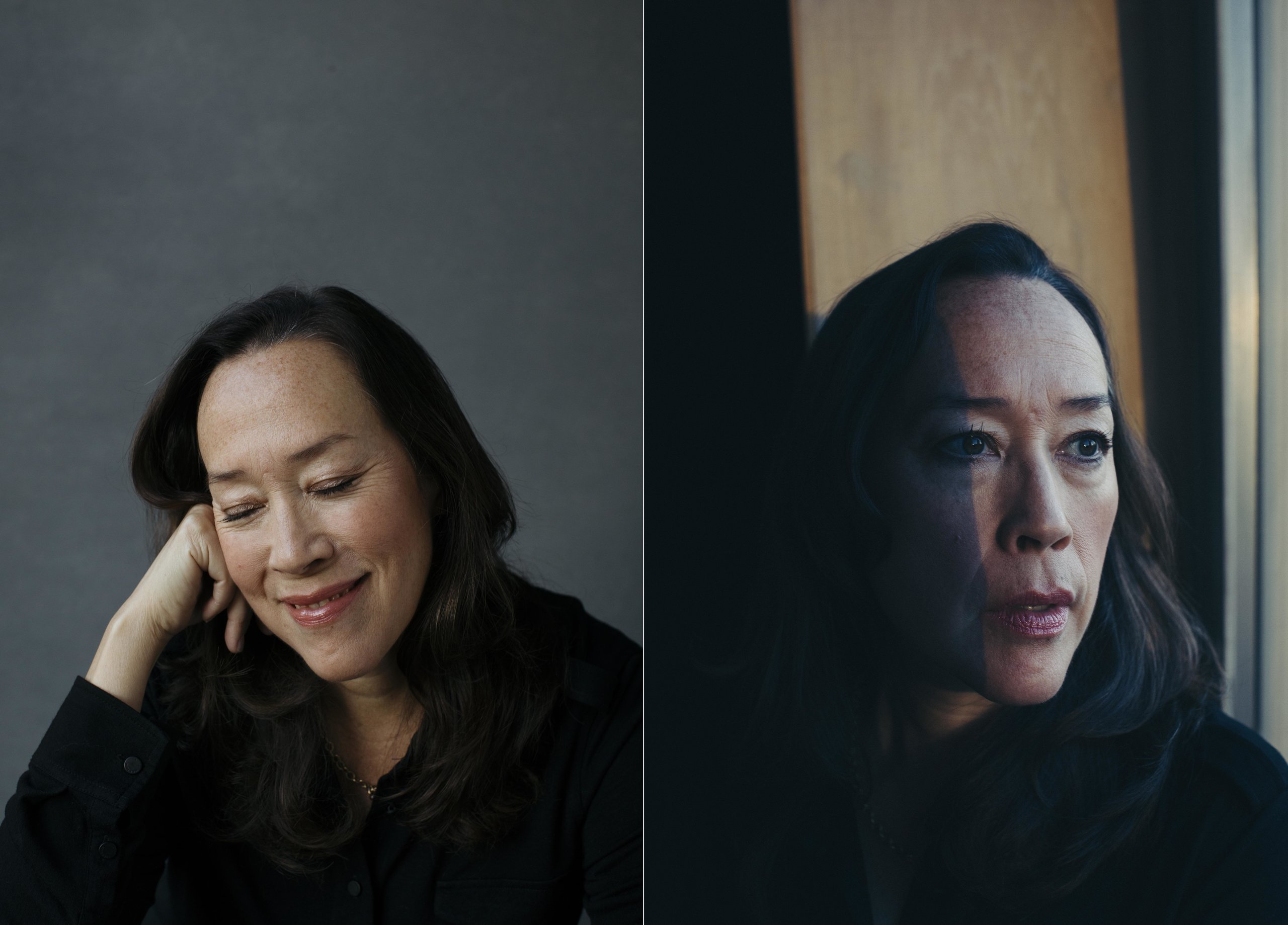
Celeste Sloman for HuffPost
Toward the end of lunch, a “Destroyer” publicist swoops by our table with a seven-minute warning to wrap things up ― remember, it’s awards season and Kusama’s got places to be. Kusama is excitedly recalling the first time she saw another famous detective movie, David Fincher’s “Se7en,” and how immediately afterward she had to ― not merely wanted to, but had to ― watch it again.
“Because if I didn’t understand it better, I was going to have bad dreams and a nervous breakdown,” she says, laughing.
We reflect on recent films that left us with that same mix of elation and bafflement. For me, it’s Park Chan-wook’s “The Handmaiden” and Yorgos Lanthimos’ “The Lobster.” Kusama feels that same itch watching the Greek filmmaker, naming Lanthimos’ demented 2017 tragedy “The Killing of a Sacred Deer” as another film she felt compelled to revisit. “I was like—” she says with a pause, searching for the right words to describe the movie’s dumbfounding finale, “What did I just see?” We both share the same fascination with Paul Verhoeven’s “Elle,” the controversial pitch-black comedy-thriller starring Isabelle Huppert.
“The entire movie is a trigger warning!” she says. “I love the recklessness of that.”
Reflecting on Kusama’s career, I tell her it’s not hard to imagine her films existing as more traditional, straightforward dramas. In another filmmaker’s hands, Erin Bell’s story could have been that of a mother struggling with depression. “The Invitation” could have been about two grieving parents, and “Girlfight” could have been a character study of a Latinx woman surviving in the Brooklyn projects. Even “Jennifer’s Body” could have arrived as a by-the-numbers teen dramedy about toxic female friendships.
In reality, Kusama’s movies are all those things at their core; the magic of a Karyn Kusama film is how it covertly folds human stories about loss and guilt into a package that begs us to open it. “Destroyer” has all the hallmarks of its genre, from suspenseful bank shootouts and nerve-jangling foot chases to morally compromised detectives and ominous bad guys. The pulpy thrills are lampposts that illuminate Kusama’s descent into the mind of a woman molded by shame. Its elliptical narrative leaves room for audiences to piece a story together at will, uncover something unexpected.
“There’s something exciting about hiding a lot of really cool ideas in a movie that potentially more people get to see because they heard it was a cop movie,” Kusama said. “Or a horror movie or a horror-comedy, that they have certain ideas about what that looks like.”
And if audiences feel a similar compulsion to revisit “Destroyer” after first watch, Kusama won’t be mad.
“If you can make work that asks more questions than it answers,” she says, “you’re in great shape. If it can be a genre film that doesn’t tie up every single element, you’re in some kind of movie nirvana.”
Oliver Whitney is a film critic and culture writer living in Brooklyn.
[ad_2]
Source link

